
As college sets an environment for career searching, many students naturally find it difficult to choose the direction they want to go in. While some fresh graduates may feel underwhelmed by their options, there are even less openings for people with special needs (PWSNs)—including (but not limited to) those with autism, Down syndrome, learning disabilities, or similar diagnoses.
Despite government initiatives to bring PWSNs to light, the stigma of these individuals as incapable continues to make it difficult for them to sustain a livelihood. Many employers shun PWSNs from the get-go due to the overarching stereotype that labels them as incompetent and unqualified. This means that PWSNs don’t even get the chance to prove themselves when tasked with work.
One café in Quezon City, however, has taken it upon itself to fill this gap in opportunities. That café is Puzzle Gourmet Store and Café, which offers both coffee and meals, as well as a place for PWSNs to shine as friendly staff members.
Fixing the frame
Owner Ysabella Canoy conceptualized the idea after seeing her younger brother Jose struggle with autism. Their entire family sought out a way for him to be more integrated, rather than just staying at home. “There [are] not a lot of opportunities for individuals like them,” she says. “Most of the efforts being done [for PWSNs] are in the private sector.” She further explains that most PWSNs are only able to take part in these initiatives if their family members know the organizers.
As a result, the family thought of opening a convenience store that would cater to Jose’s penchant for organizing grocery products. “He would [put] the [grocery items] back in their proper aisles, making the labels face front,” recalls Canoy. “But then as [we] talked about it even more, [we] wanted it to be a little bit more marketable.”
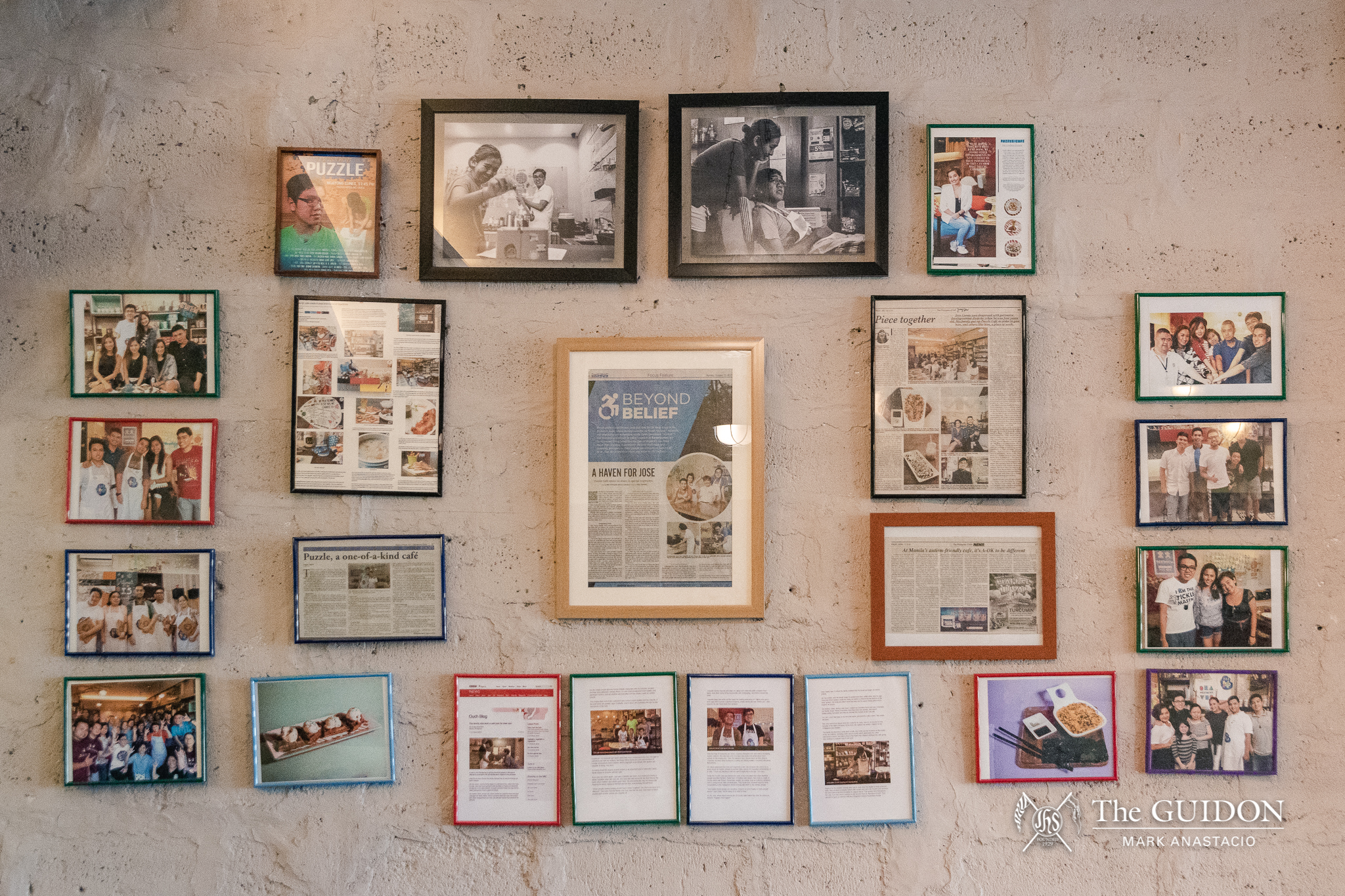
Photo by Mark Anastacio
It helped that a space near their subdivision, Blue Ridge, was available. In 2014, the Canoys’ laid-back, neighborhood café became a possibility. “It’s not as fast-paced as a café in the mall,” she continues. “At least [here, it’s more] relaxed, where Jose can be who he really is.”
Though Puzzle Gourmet Store and Café began as a training ground for Jose, the café also hired other PWSNs for work. PWSNs are often introduced to Puzzle through walk-in applications, or partnerships with special education schools like the Independent Living Learning Centre and the Life Skills Development Intervention Center—that integrate job readiness programs (JRP) in their curricula. These JRPs cater to PWSNs in their 20s and focus on teaching students work attitudes and vocational skills, like food preparation and housekeeping. The students are brought to the café after completing their training in school. They are accompanied by teachers on the first few days of the job, but are eventually left to independently follow instructions from other staff members. This way, they are able to gradually adjust to the work environment at the café.
Hand in hand
Indeed, Puzzle’s servers and customers alike thrive in this humble, homey café. The place builds on playful nostalgia, with bright hues, puzzles, and board games lining its walls. Expect to have your usual selection of caffeinated drinks, as well as familiar dishes with their own twists: “baked” sushi, Asian Persuasion salad, and seasoned kamote fries, to name a few.
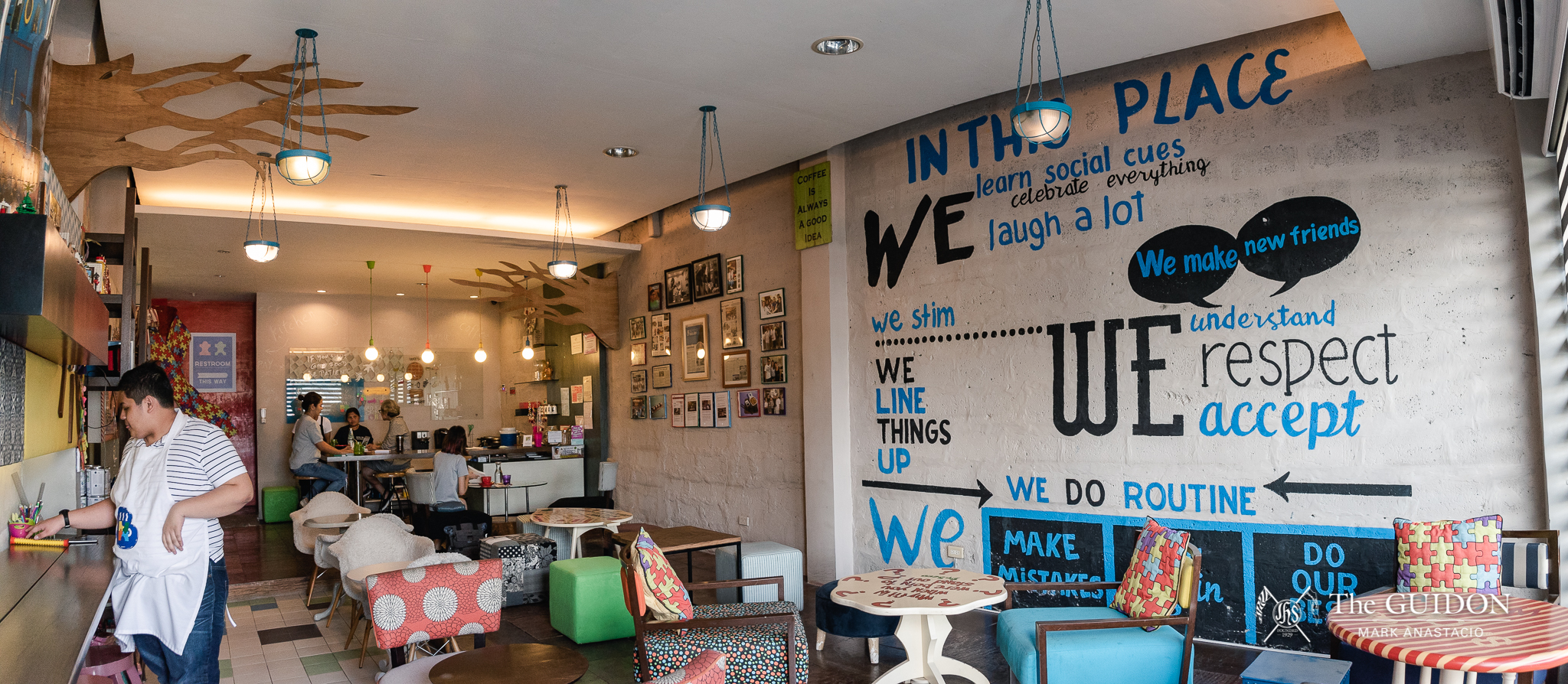
Photo by Mark Anastacio
Beyond its cozy interiors and comfort food, however, the main draw is an accommodating staff—which currently has 15 PWSNs on rotation throughout the week, assisted by non-PWSN employees.
One server with autism is Cornell, who has been working with Puzzle for four years. Upon greeting patrons, he presents them with the café’s menu and an order form to indicate their desired dishes. By using this checklist, Puzzle eases its staff members into conversations with new people—which can otherwise be a jarring experience for many PWSNs. Autism, for instance, often comes with a need for routine, and the uncertainty of first-time meetings cuts into those established systems.
“It’s difficult for [PWSNs] to predict body language,” Canoy remarks. Even Jose resisted the job in his first few months, sometimes screaming and lying down on the floor. Still, with time and training, Canoy has watched each employee grow. Cornell is an example, since his encounters with customers do not end at collecting the completed order forms. Rather, he takes the time to look people in the eye, repeat their orders, and chitchat when prodded.
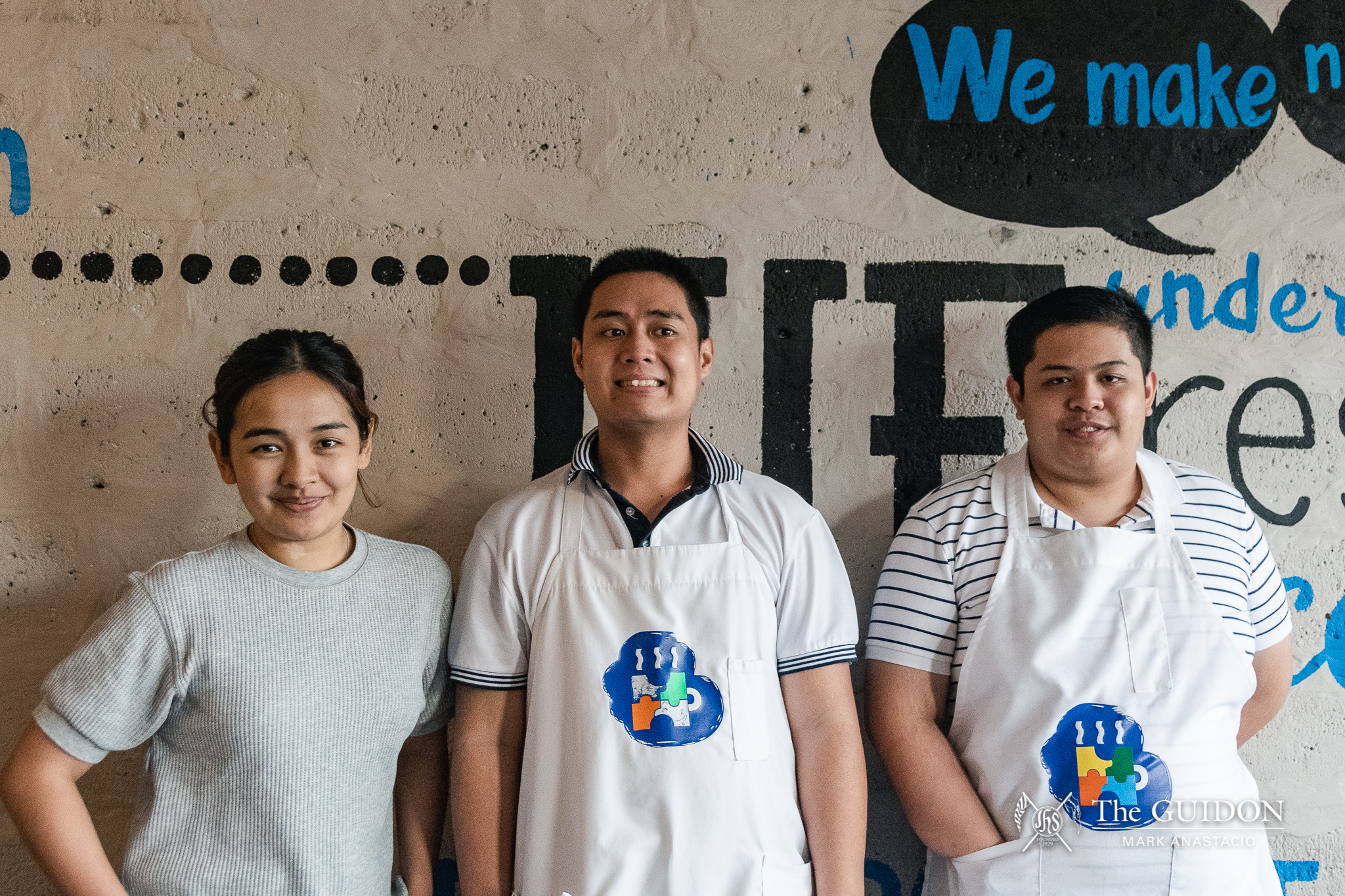
Photo by Mark Anastacio
“Opo, masaya rito,” he says when asked about his job. “Magkakaibigan po kami… Lahat kami nagtratrabaho.”
(Yes, it’s happy here. We’re all friends, [and] all of us work together.)
“For most of them, this is their first go at a job,” Canoy adds. “So even professionals, teachers, experts, they’re all surprised that this [maturity] is the result of PWSNs being in a workplace. They require a little bit of adjustment, just like any person.”
Puzzle helps with that adjustment. From simple aides like the menu checklist, to Canoy’s careful supervision of everyday operations, the café provides guidance and work experience to make PWSNs more competitive. Now, companies like Unilab and Southstar Drug house former Puzzle employees with special needs, who carefully manage the firms’ inventories or timesheet records. These tasks appeal to certain PWSNs’ eyes for order, making them efficient and committed to their roles. As Canoy puts it, “they aren’t lazy, and they don’t complain,” contrary to what others may think about PWSNs being unemployable.
Pieced together
Canoy’s vision for the community doesn’t stop at these accomplishments. “The idea of inclusion is for [PWSNs] to be [accepted] everywhere,” she explains. “For them to be in companies, businesses, whether it’s the restaurant business or the corporate world.”
Inclusion comes about through everyday interactions with PWSNs, so that they can be seamlessly integrated into all corners of society. On one hand, Puzzle is a destination café, with visitors hailing as far as North America and Europe. “Most [patrons] are families who are also taking care of people with special needs,” observes Canoy. Yet she is particularly glad when customers drop in by chance, then leave as newly minted champions for inclusivity. This is the rationale behind the Ateneo Special Education Society’s (SPEED) yearly Puzzle pop-up within the Loyola Schools. The collaborative project, called “A Special Café,” helps Ateneans interact with PWSNs on their own terms, witnessing the staff’s capabilities in action.
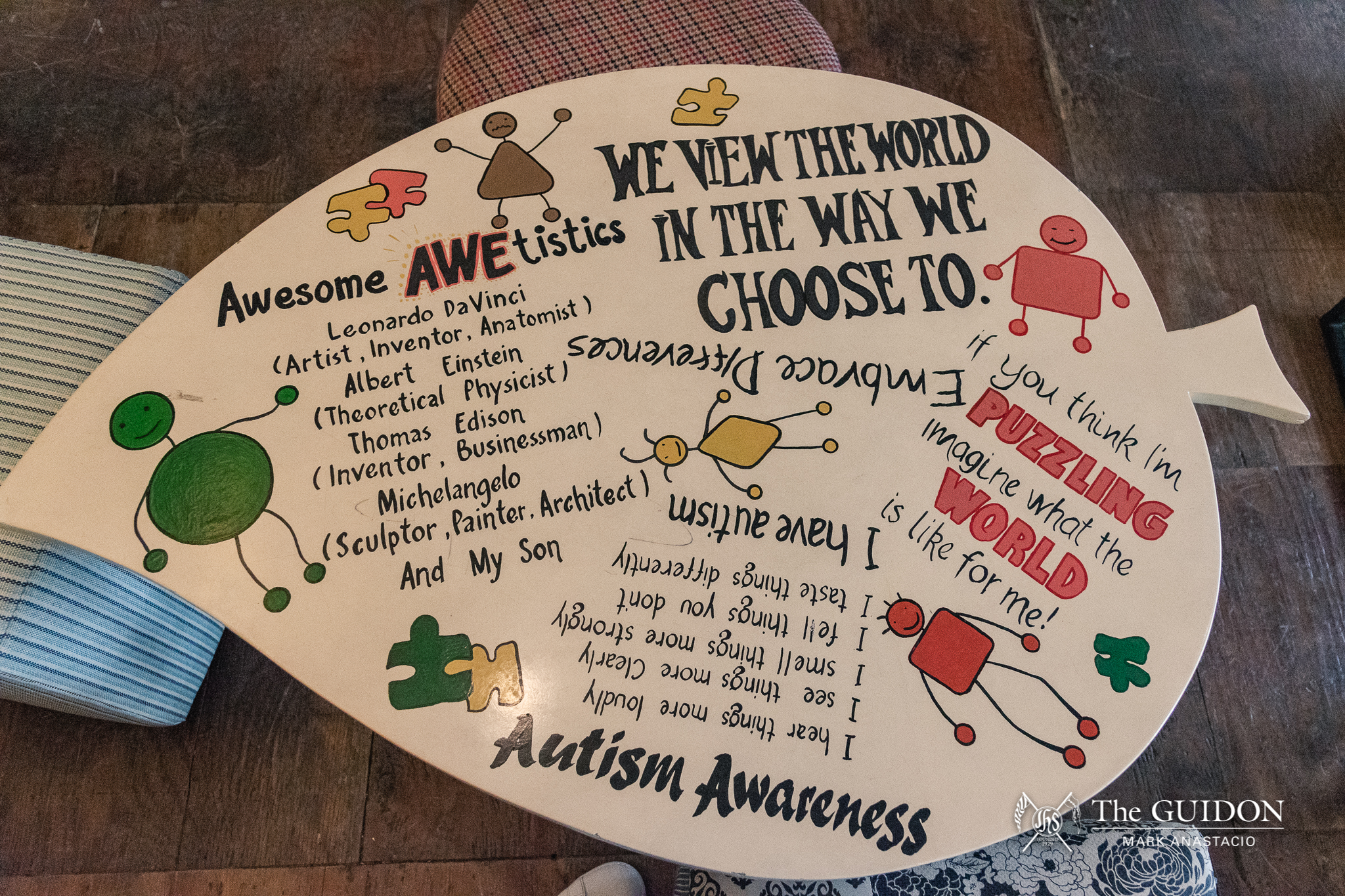
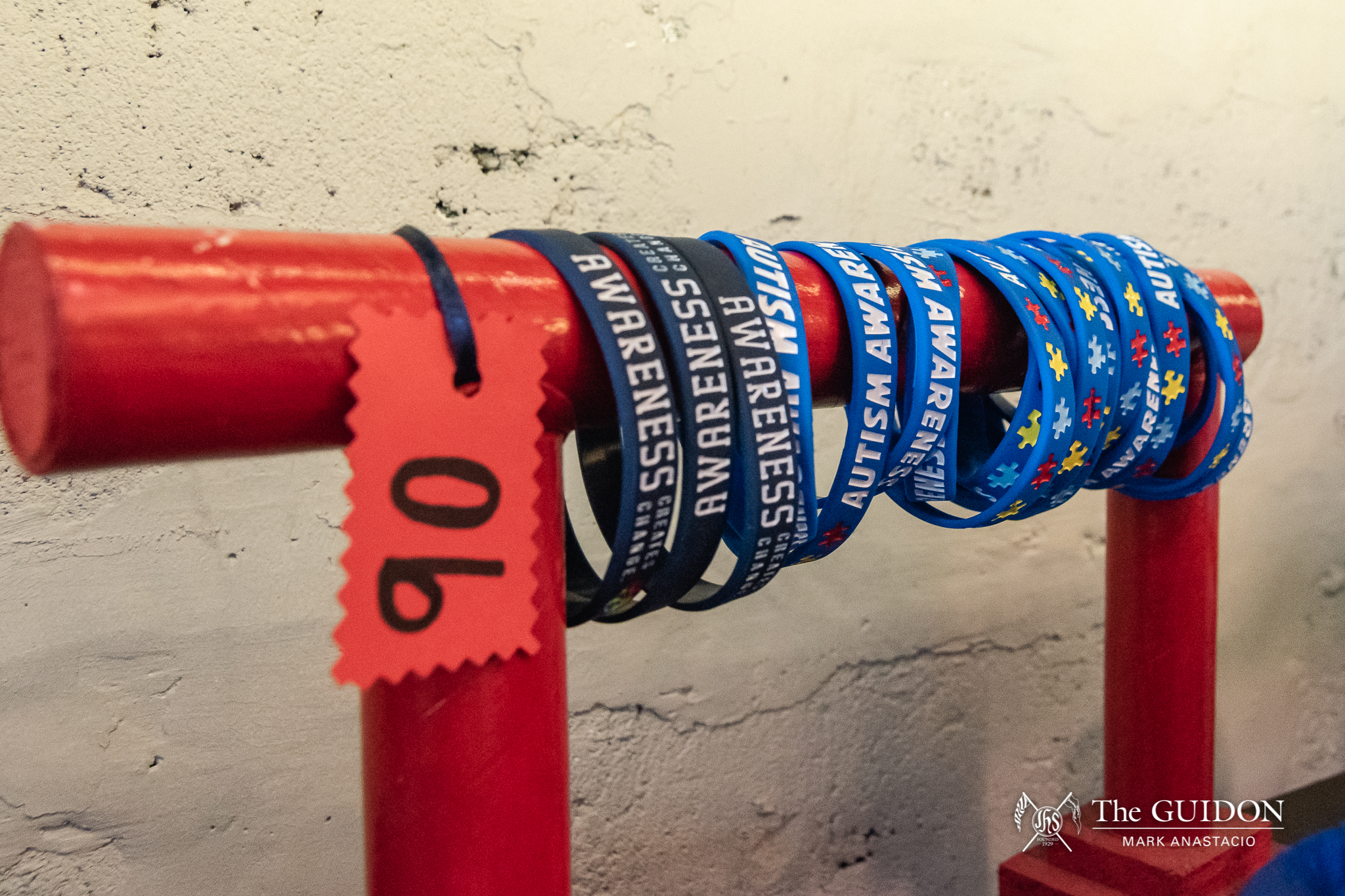
Photos by Mark Anastacio
Supporting those with special needs is an ongoing fight, though Puzzle and its allies have done a lot for the cause in just four years. For those new to the advocacy, Canoy clarifies that the puzzle piece, a longstanding symbol of special needs, does not signify an individual’s incompleteness.
“We believe that we’re all a puzzle piece and if we take the time to come together—like being here in the café—to try and understand one another, it completes a puzzle,” she says. And with every open mind, that picture of inclusivity emerges more clearly.
Editor’s note: Puzzle’s partner schools are the Independent Living Learning Centre, Quality Life Discoveries, and the Alternative Learning and Resource School. Life Skills Development Intervention Center is also a special education school, however they are not affiliated with the café. We apologize for this oversight.